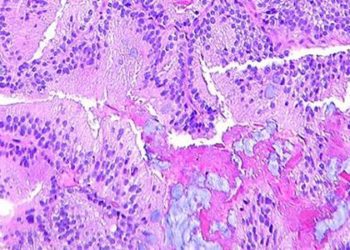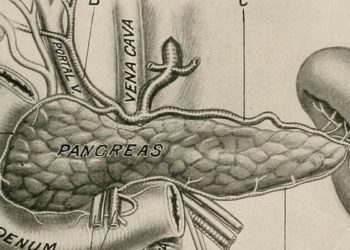Proguanil and atovaquone use may be associated with lower colorectal cancer risk
1. The use of proguanil/atovaquone amongst individuals with a family history of colorectal cancer (CRC) was associated with a decreased risk of developing CRC.
Evidence Rating Level: 2 (Good)
Individuals who have relatives with colorectal cancer (CRC) have a 2-4 times increased lifetime risk of developing CRC, compared to those with negative family history. Therefore, preventative strategies for CRC have been explored, including drug repositioning. One class of drug that has been proposed is biguanides, known to have anti-proliferative properties, with the drug proguanil found to have the most inhibitory action against colon cancer cells compared to other biguanides. As well, the drug atovaquone was also found to exert anti-cancer activity through inhibiting mitochondrial production of oxygen radicals. Together, proguanil/atovaquone is used as an anti-malarial drug. Therefore, this retrospective cohort study based in Sweden examined the correlation between proguanil/atovaquone exposure with CRC risk, for individuals with CRC in their family history. Health records were accessed from 2005 to 2018, the end of the study period. Every patient that was prescribed proguanil/atovaquone was matched to 10 randomly selected comparisons based on age and sex. In total, 184,987 patients were found to have a first-degree relative diagnosed with CRC. With a mean follow-up of 7.1 years, the study found that the incidence of CRC amongst proguanil/atovaquone exposed individuals was lower than non-users, with 9.32 compared to 12.07 per 10,000 person-years, with an adjusted hazards ratio of 0.76 (95% CI 0.62-0.93). This relationship was also found to be dose-dependent and duration-dependent (p < 0.001). As well, the correlation was greater for more advanced stages of CRC (adjusted HR 0.69, 95% CI 0.51-0.92) as opposed to earlier stages (adjusted HR 0.88, 95% CI 0.65-1.20). Overall, this study showed that the use of proguanil/atovaquone amongst individuals with family history of CRC was associated with a decreased incidence of developing CRC.
Click to read the study in BMC Medicine
Image: PD
©2022 2 Minute Medicine, Inc. All rights reserved. No works may be reproduced without expressed written consent from 2 Minute Medicine, Inc. Inquire about licensing here. No article should be construed as medical advice and is not intended as such by the authors or by 2 Minute Medicine, Inc.








